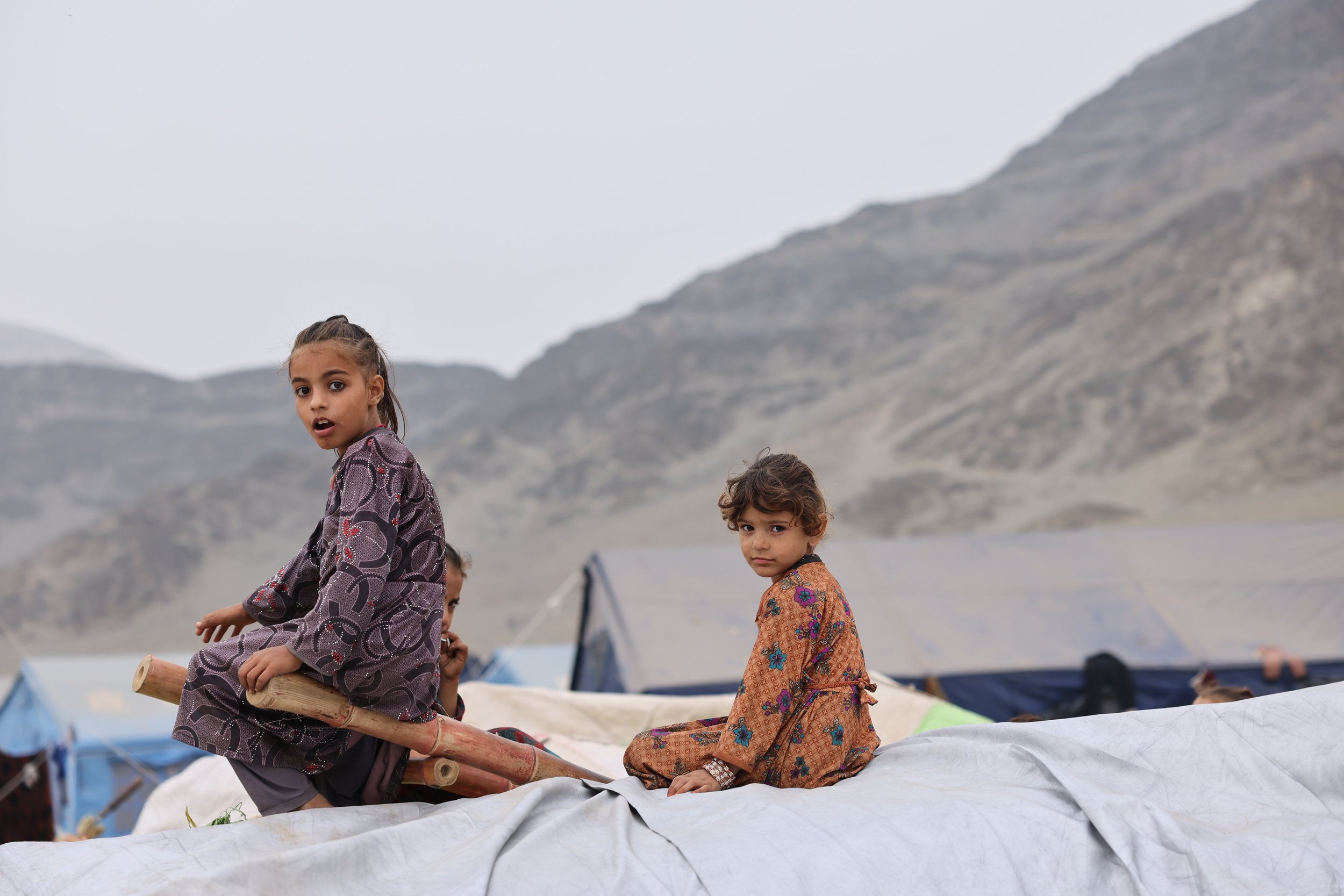Between Borders: Rahmatullah
Photo: Sayed Aman Sadat
Rahmatullah, 36, is a Pakistan-born Afghan. His family left Afghanistan when the Soviet Union invaded over 40 years ago, and they have called Pakistan home until recently.
In October, feelings of fear and disorientation took hold when it was announced that Afghans living in Pakistan had one month to leave or face dire legal consequences. Rahmatullah and his family were confronted with a complex situation and little time to make a decision. Would they try to stay in the only home he, his wife, and his seven children have ever known? Would that even be possible? They were told the police would be heavily involved—searching house by house for people to arrest and remove from their homes. They were told any Pakistani who tried to help people like them would be punished as well. They knew the longer they stayed, the more dangerous their situation would become.
Ultimately, Rahmatullah’s decision to leave in October was driven by a particularly distressing day at his children’s school.
“The worst thing they did, and the saddest day for me, was when they took away my children’s books in their school and told them they had to leave this country. That day at 3 PM I made my final decision that we had to go back to [Afghanistan], a country where we had no home because the land we had for generations in Takhar was taken by warlords during the civil war.”
Although they left before the police began doing door-to-door searches in early November, it was still a forced decision they would not have made without the expulsion order.
“I can’t call [us leaving] ‘voluntary’ because the situation was getting untenable for us. We had to leave. We had a poor but manageable life. I had a job, but most importantly my kids were going to school there. But in the end, we didn’t leave it to the point where the police had to force us out. We left. I had to save some dignity,” says Rahmatullah.
They could only take the bare minimum of household items with them as they could not afford to rent a larger truck. The belongings Rahmatullah had worked tirelessly for years to purchase for his family were sold off for far below their value in an effort to leave quickly. Everything else was left behind.
The journey across the border to Afghanistan was chaotic. Many parents, like Rahmatullah, were fearful their children would get lost or injured in the sea of thousands crossing the border.
“The Pakistani government’s last effort to dehumanize was when we reached the Landi Kotal camp near Torkham. We arrived there at 8:30 in the morning. There were militia police responsible for managing our exit but they kept us for hours making excuses that ‘this officer is busy and that officer is out of office,’ etc. Finally, at 1:30 PM, they told us that they had to separate us. I had to stay with my household belongings while my wife and seven kids were taken in the deportation vehicles with other Afghan families. I was very worried about the border crossing. There were tens of thousands of people and I was very worried that my little kids might get crushed under the feet of the crowd. I told my family not to worry and to sit and wait for me on the left side of the road when they entered Afghanistan and I would find them there. They left without me at 1:30 PM. Nine hours later, at 10:30 PM, I heard my seven-year-old son screaming, ‘There’s Baba!”
Rahmatullah describes the scene during those first couple nights in Afghanistan:
“There was a lot of confusion and worry about what was going to happen. We were dropped off with our belongings near the camp and were told to wait until we got a tent. Every family that was waiting their turn to get a tent made a kind of fortress around them using their belongings and stayed inside. I did the same. For two nights, we had to sleep under the open sky. Those two nights under the open sky, without a roof on my whole family, were very tough. Not just because of the immediate condition that my family was in, but because I kept worrying about the life ahead. I had no idea where we would end up living, which province we should go to, how I would find work, or if the authorities had any plans for us as the returnees.”
They spent 15 days in the camp before travel arrangements were made. It was hard to get back to Takhar, the region in which his family’s land was stolen, so they first traveled to Kunduz with partial help from the de-facto government. From there, they were on their own. During the journey, Rahmatullah’s pregnant wife fell ill. They stayed in the hospital and spent a night in their rented truck. Thankfully his wife recovered and they were able to rent a small home.
Two months later, Rahmatullah and his family are starting to settle into a new life, but it hasn’t been easy. His family is not used to the extreme conditions of harsh Afghan winters, which also poses a problem for his ability to find work in construction or cleaning—two industries that typically close down during the coldest months. They weren’t permitted to bring much of their money through the border and have run out of their savings, but he is determined to find work to support his family.
Like him, all of Rahmatullah’s children were born in Pakistan and it’s taking some time to adjust to the new social landscape. His 10-year-old daughter keeps reminding her parents that if she was still home in Pakistan she would be at school with her best friend. After the 6th grade, she will no longer be legally allowed to attend school in Afghanistan. His other daughter, who is 14, is past the age girls can go to school. Like the other Afghan fathers we’ve spoken to, Rahmatullah’s greatest wish is for all of his children, girls and boys, to become educated and grow up into upstanding, happy adults.
When asked about his dreams for his children he says, “First I hope they grow up to be decent human beings, secondly I hope I can provide them with opportunities for education. I hope I provide for them, and I hope my kids won’t have to say that our Baba couldn’t do anything for us when I am no more.”
In the meantime, he will do anything he can to help them achieve success and happiness in life. In regards to education, all they can do is have faith that one day all Afghan children will be allowed to go to school again.

